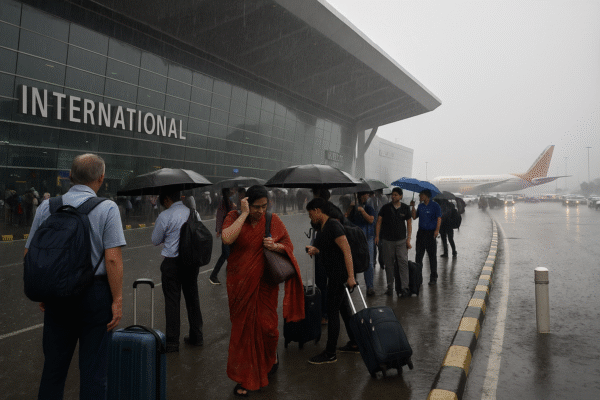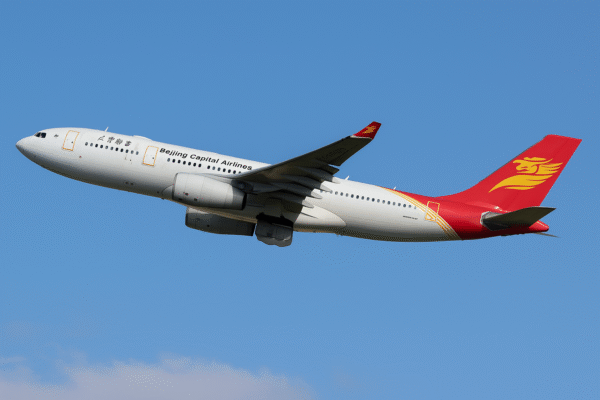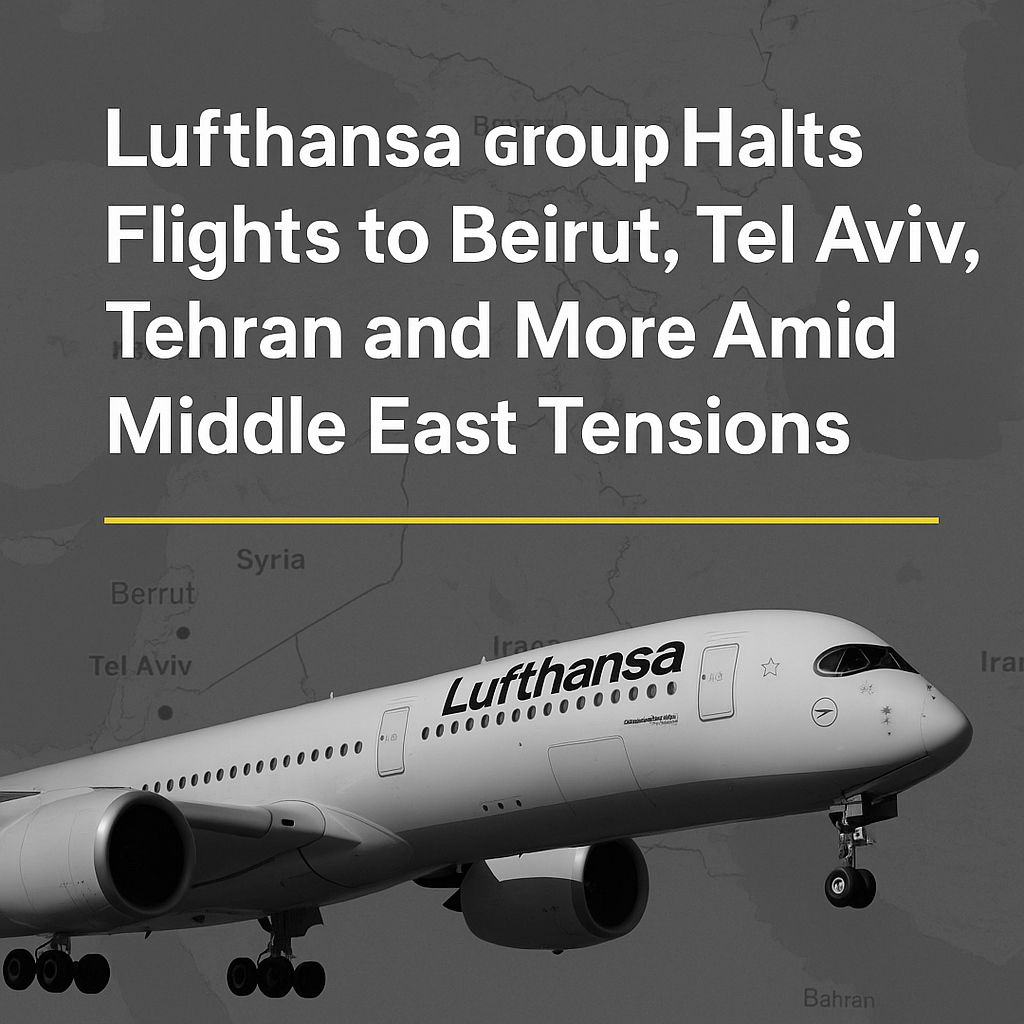Lufthansa Group Suspends Flights to Key Middle East Cities Amid Escalating Regional Tensions
June 24, 2025 | Global Travel Wire
In a sweeping decision driven by mounting regional instability, the Lufthansa Group has announced the suspension of its scheduled passenger and cargo flights to several major Middle Eastern cities, including Beirut, Amman, Erbil, Tel Aviv, and Tehran. The decision, effective immediately, affects multiple carriers under the Lufthansa Group umbrella—namely Lufthansa, SWISS, Austrian Airlines, Eurowings, Brussels Airlines, ITA Airways, and Lufthansa Cargo.
The move reflects growing security concerns throughout the Middle East, where escalating geopolitical unrest has prompted European airlines to reassess their operations and passenger safety commitments. While temporary, the suspensions are expected to last through various stages into late July 2025, depending on the city.
Duration of Flight Suspensions Vary by Destination
Lufthansa has confirmed that flights to Beirut will remain suspended until June 30, 2025. Operations to Amman and Erbil will remain grounded until July 11, 2025, while services to Tel Aviv and Tehran are suspended through July 31, 2025.
In line with safety protocols, the airline group has also declared a complete avoidance of airspace over the affected regions until further notice. This policy extends to both passenger and cargo flights, underlining Lufthansa’s commitment to operational safety.
Impact Across Lufthansa Group Airlines
This operational halt reverberates across the Group’s network, notably impacting:
- SWISS International Air Lines, which has extended its Tel Aviv suspension through October 25, 2025, citing “operational and safety priorities.” Flights to Beirut will not resume before July 31, 2025.
- Austrian Airlines, which mirrored Lufthansa’s move by suspending flights to Tel Aviv and Tehran through July 31, 2025.
- Eurowings, the budget-friendly carrier, has suspended flights to Beirut until June 30, and to Amman and Erbil until July 11.
- ITA Airways, Italy’s flag carrier (operated under Lufthansa Group partnership agreements), has indefinitely canceled flights to Beirut, Tel Aviv, and Tehran.
- Brussels Airlines has also aligned its schedule with Lufthansa, halting service to Beirut until June 30, and to Amman, Erbil, Tel Aviv, and Tehran until July 31.
Each carrier within the group has provided direct communication and updated advisories for affected passengers through their official platforms.
Lufthansa Cargo Also Impacted
The suspension also hits Lufthansa Cargo, the Group’s vital freight arm. Cargo deliveries to Beirut, Amman, Erbil, Tel Aviv, and Tehran have ceased temporarily. The move significantly impacts logistics operations in a region where air freight plays a crucial role in supporting supply chains.
The cargo division has implemented rerouting options where possible and is working with clients on mitigation strategies. The Group confirmed that airspace restrictions also apply to all freighter routes.
Passenger Advisory and Rebooking Support
Lufthansa Group has urged all affected travelers to:
- Check flight status regularly via official airline websites.
- Use automated rebooking tools provided by the airlines.
- Request full refunds for canceled routes.
- Seek alternative travel solutions where available.
Dedicated customer service representatives are on standby across all partner airlines, including SWISS, Austrian, Eurowings, and Brussels Airlines, to handle rebooking, cancellations, and traveler inquiries.
Aviation Industry Reaction
Industry analysts suggest the decision underscores Lufthansa’s risk management stance amid deteriorating security conditions in the Middle East. While the group has not cited specific incidents, global media have reported increasing tensions in the region, with sporadic conflict and government advisories warning against non-essential travel.
The European Union Aviation Safety Agency (EASA) continues to monitor regional airspace developments. Lufthansa’s actions appear to follow broader risk assessment strategies aligned with EASA’s guidance and Eurocontrol advisories.
Broader Implications for Tourism and Connectivity
This suspension disrupts a vital air bridge between Europe and the Middle East. Major cities like Beirut, Tel Aviv, and Tehran are not only significant cultural and political hubs but also important gateways for business and leisure travelers. The interruption affects thousands of tourists and diaspora communities reliant on these routes.
Destinations like Amman and Erbil—critical for both religious pilgrimage and regional business travel—will also see a downturn in visitor arrivals during the suspension period.
While regional tourism boards have yet to issue formal responses, stakeholders in Jordan, Lebanon, Iraq, and Israel are preparing for a ripple effect in hotel bookings, tour operations, and airport service traffic.
Conclusion: Flight Uncertainty Reflects Regional Volatility
The Lufthansa Group’s latest move marks one of the most extensive suspensions by a European airline in 2025. With the situation in the Middle East still evolving, the group has not outlined a definitive timeline for resuming operations. Passengers planning travel to the affected cities are advised to remain flexible and frequently check for updates.
In the interim, Lufthansa and its partner carriers reaffirm their commitment to prioritizing passenger safety, maintaining transparency, and offering flexible options to travelers during this period of heightened caution.
For more travel news like this, keep reading Global Travel Wire















